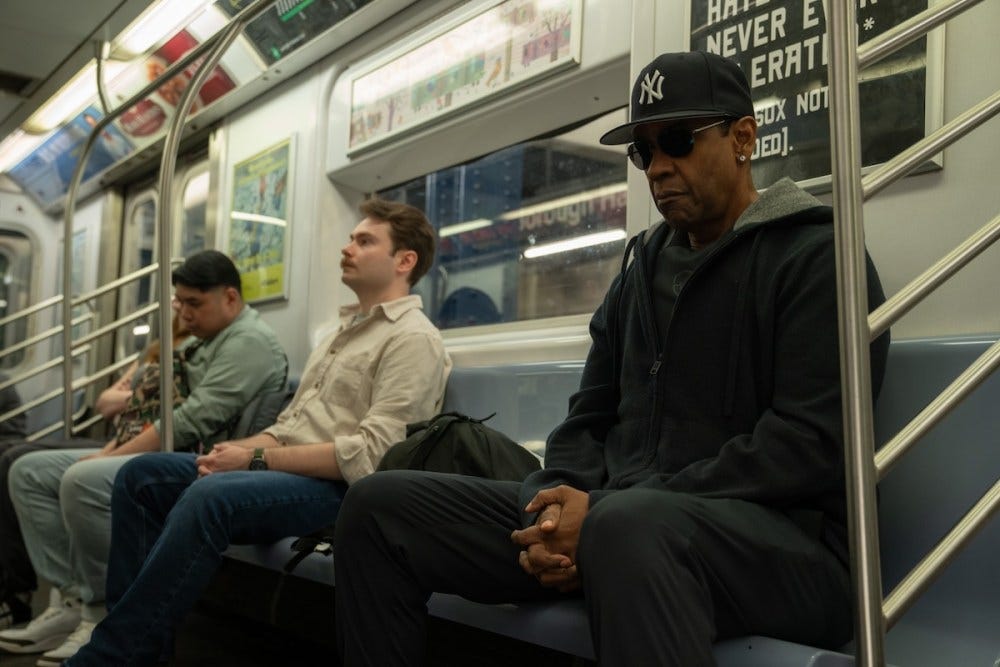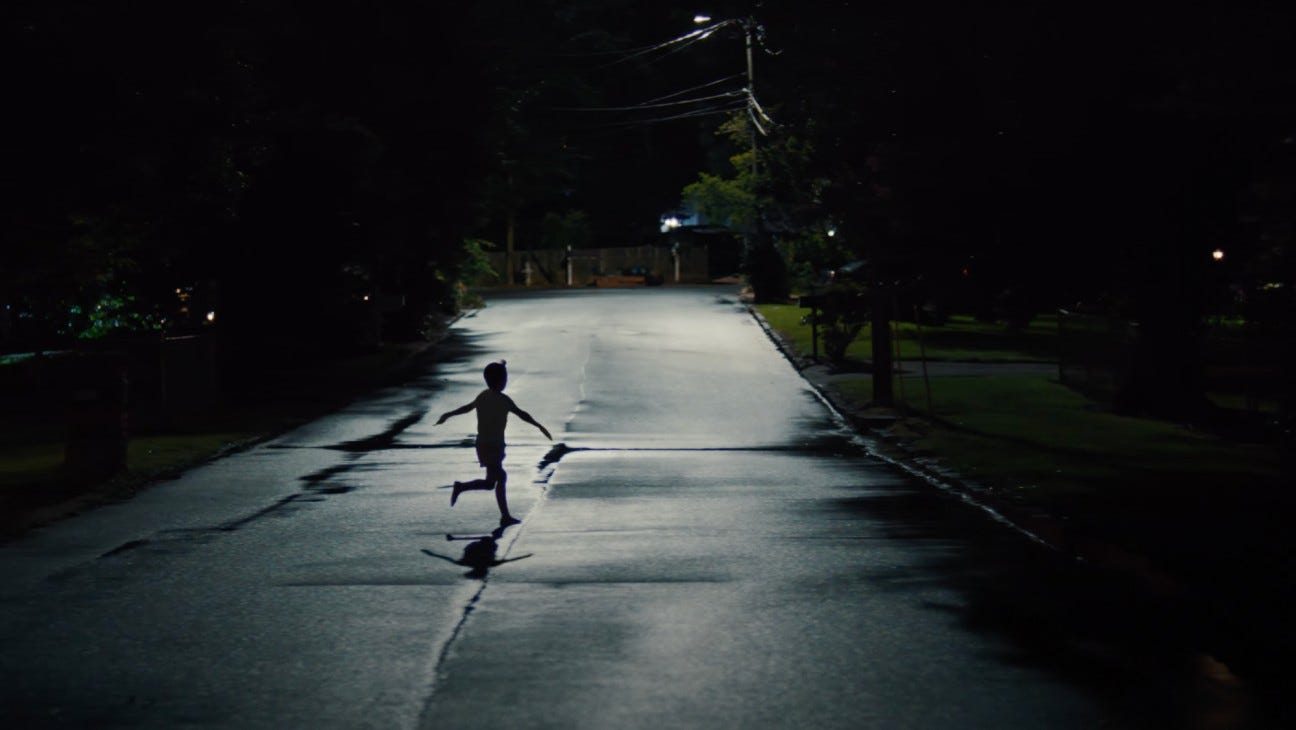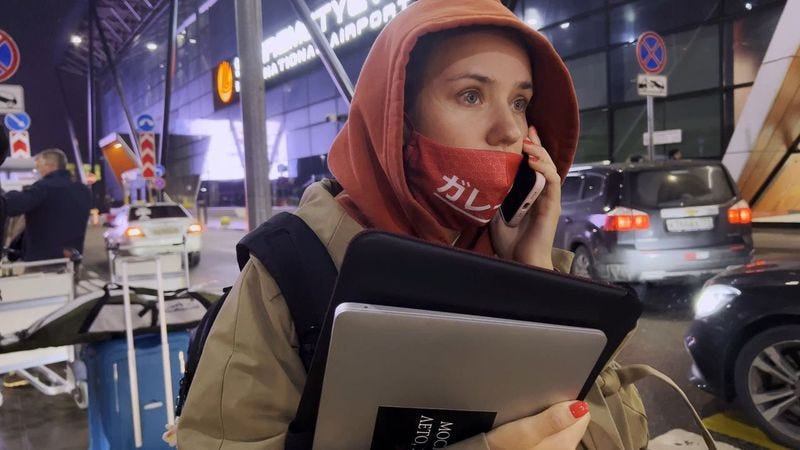From My Life: Highest 2 Lowest, Weapons, My Undesirable Friends + The Honey Quartet
A special transmission from The Honey Quartet + a new release roundup
For various reasons, both work-related and personal, I haven’t had as much time this month to write full-length reviews, but it’s actually been an exciting time for new releases, and some half-formed thoughts are ultimately better than nothing.
One of the main reasons I haven’t been writing is that I’ve been traveling. I spent a little over a week in New York visiting friends, and yes, watching lots of movies. The first few days of the trip were spent with my college string quartet, the Honey Quartet (named after a friend’s dog!). Before the movies, I channeled all of my obsessive energy into the viola. I don’t really play anymore, but it’s still something that means a lot to me, and I love the 1-2 times a year I get to play with old friends.
Over a long weekend, we rehearsed the first and third movements of Bedřich Smetana’s first String Quartet, “From My Life”. As the title suggests, it’s an intensely autobiographical piece, composed as the then destitute Smetana was losing his hearing from syphilis. These program notes from the LA Phil describe the piece as an “intensely personal reflection”, which accurately describes its roiling, unabashed romanticism, as well as its state between sweet nostalgia and torturous brooding. The third movement, which alternates between lush ensemble work and delicate solo crooning, is a love letter to the composer’s wife, whereas the darker, virtuosic first movement, which opens with a famous viola solo, looks back to Smetana’s youth, depicting “the unspeakable yearning for something I could not express or definitely imagine, and also a sort of warning of my future disaster”.
Our recordings are on Youtube now, and I’d appreciate it if you gave it a listen, maybe as you read the rest of this post!
Highest 2 Lowest (Spike Lee, 2025)
The first thing I watched after getting home was the latest Spike Lee, Highest 2 Lowest, the iconoclast’s loose remake of the Kurosawa classic High and Low. In Lee’s adaptation, Denzel Washington plays a David King, a music producer on the decline whose son is kidnapped for ransom just as he’s trying to save his record label from an impending acquisition. The twist that’s introduced early on is that it’s not actually King’s son who’s been kidnapped. Instead, the missing child is his friend/assistant’s (Jeffery Wright), so King is placed in the position of choosing to either buy back his company or his friend’s son.
I’m surprised there’s been such a vitriolic reaction to the film’s stilted first half since it’s clear that to an extent, Lee is playing on ideas of high and low with pastiche, representing King’s out of touch life with stilted, bourgeois soap (a paradoxically low-culture genre) and the immediacy of life on the ground as a crime thriller. I wouldn’t make any grand claims for this off-putting opening, but I will say that it’s precisely the blurred line between intention and “fellow kids” delusion that I find compelling. The wife’s exposition of Ebony alerts, the ineffectual police, the usage of Oklahoma, all feel part and parcel with sketching an alien world of twisted morality, while the writing about the internet, or the Kamala Harris poster that hangs in the penthouse apartment, are strange in ways that reflect the film’s central struggle of connecting to the streets while retaining the benefits of class privilege.
Once Denzel makes the morally sound decision and descends from his ivory tower, Highest 2 Lowest kicks into gear, showcasing the propulsive, irrepressible filmmaking that Lee is best at. I started tearing up during the jubilant sequence where King takes to the streets to drop off the ransom money and pursue the kidnapper, only to find his mission disrupted by a real-life Puerto Rico Day celebration. Here, Lee takes one of the film’s most vital narrative set-pieces, where New York City could easily become a playground for the ultra-rich King (and Lee himself, who surely shutdown numerous subway stations during the film’s production), and submits it the anarchic vitality of real life, expressing what all those slogan-ized platitudes about “defiant joy” have commodified.
I haven’t stopped thinking about Highest 2 Lowest’s final act, which features a stand-out performance by A$AP Rocky as the struggling, tormented rapper who kidnaps in a desperate plea to get King’s attention. Rocky’s character is a tragic figure, a real talent whose actions are a byproduct of King’s upper-class detachment. The complexity isn’t that King doesn’t sign him (Rocky’s crimes are rewarded by another greedy, enterprising record label), but that the new “family-based”, “music-first” indie label that King kickstarts in the comfort of his penthouse apartment is also Bad. If King David actually wants to use his “best ears in the business”, he has to actually put his ear to the ground, not will the ground to come to him.
Highest 2 Lowest is in theaters now.
Weapons (Zach Cregger, 2025):
I’ve gotten questions about my thoughts on Weapons, the latest from Zach Cregger (Barbarian) about a community’s investigation into the disappearance a class of elementary school children. It’s probably worth noting at the outset that genre film isn’t something I naturally gravitate towards, but even so, I found Weapons frustrating. A particularly generous reading would probably connect the myriad thematic gestures about the weaponization of child safety (school shootings, AIDS paranoia, police violence, pedophilia, etc) to the episodic, perspective-switching structure, which “weaponizes” these individual characters in service of a puzzle-box narrative, but Cregger’s balance of surface-level narrative thrills and thematic substance is wildly out of tune.
Weapons strikes me as an elaborate excuse for narrative acrobatics, with characters and settings that fail to register beyond mere plot function. Even on that level, the way each subsequent section doubles back to events we’ve seen before to breadcrumb exposition, is rhythmically laborious, and as the story feels like it should be expanding and accruing more mystery, it actually gets progressively smaller. The story’s endpoint is a literal witch, a bogeyman who’s unsatisfying as a representation of the unrepresentable and as the key to this grand narrative. If anything, her heightened clownishness (immediately reminiscent of Nicolas Cage’s turn in last year’s equally bad Longlegs), is representative of a film that just screams “Look at me!” without actually having anything to say.
Weapons is in theaters now.
My Undesirable Friends: Part 1 - Last Air in Moscow (Julia Loktev, 2025):
My time in New York serendipitously lined-up with the theatrical run of Julia Loktev’s My Undesirable Friends: Part 1 - Last Air in Moscow. In the months before Putin escalated his full-scale invasion of Ukraine, in an expansion on the existing persecution of high-profile press such as Alexander Navalny, he began marking journalists as targets of political harassment by designating them as foreign agents.
Loktev’s documentary, which clocks in at around 5 and a half hours, follows a group of mostly young, female “agents”, all associated with Russia’s last independent news station, TV Rain, as they react to the rapidly evolving landscape of Putin’s Russia and struggle to continue reporting from the front lines. Split into 5 chapters, the first three, which take place from October 2021 to New Years 2022, follow the journalists as they grasp onto any semblance of hope, while the final two, which take place during the weeks before and after Putin invasion, documents the mad scramble as everyone realizes they need to flee the country.
My Undesirable Friends is as good a movie of this political moment as we’ll ever get. Even though it could be reasonably marketed as a thriller, it really functions as a foreboding hangout film. Major events are going down (prominent NGOs are dismantled, journalists are detained, etc.), thematic threads about the rise of fascism are naturally and un-didactically raised, but all of this is filtered through dinner conversations, the practicalities of day-to-day work, drives, and lots of waiting (for a court date, outside the airport, outside a prison). My Undesirable Friends’ mixture of helplessness and humor is painfully recognizable in Trump 2.0 (I found myself choking up at seemingly random moments), and as I’ve sat with the film, what I find moving about it is how well Loktev captures this anxious semblance of normalcy. As the situation in Russia mutates, both the characters and the film, which was shot guerilla-style on an iPhone, are organically re-orienting in a constant scramble for equilibrium. I don’t know if I’ve seen a film as accurately convey the dissonant feeling that the world as we know it is crumbling, but the illusion of daily life remains somewhat stable. That is, until the proverbial fascist pot we’ve been simmering in hits a rolling boil.




